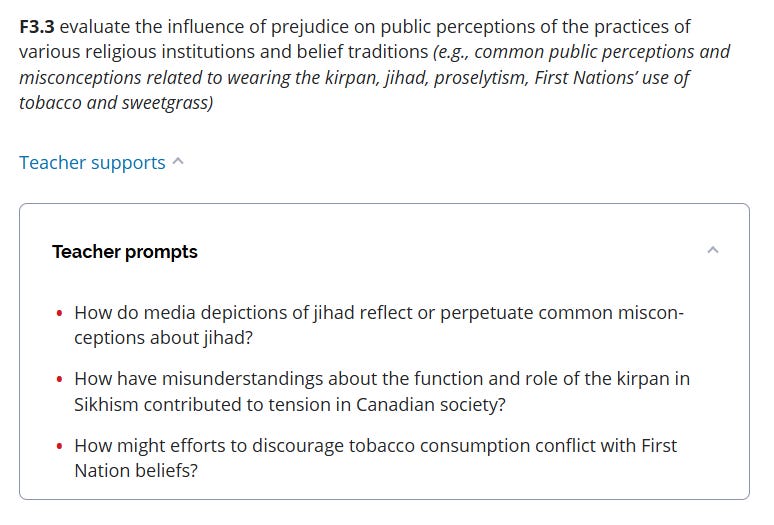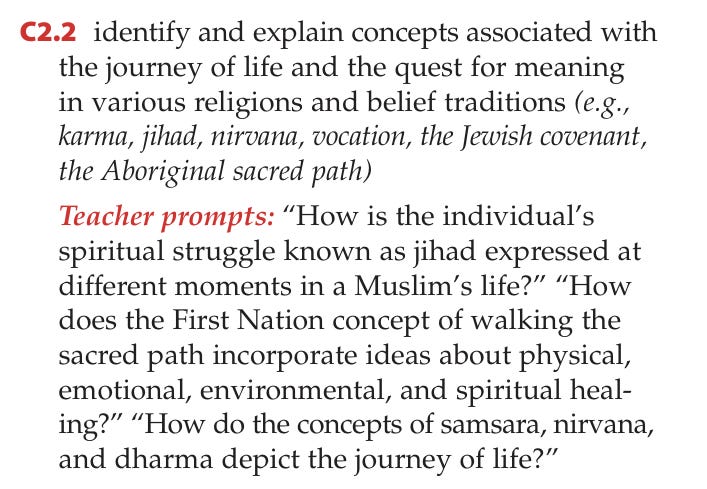Melanie Bennet: Canada must end its 'Islamophobia' blasphemy culture
Liberty does not protect the perpetually offended. It protects every citizen’s right to offend, writes Guest Contributor Melanie Bennet.

Melanie Bennet is a researcher and investigative journalist.
An employment tribunal in Britain has ruled that an ‘Islam-critical’ speech is protected under UK equality law. The decision comes after Patrick Lee was previously found guilty of misconduct by the Institute and Faculty of Actuaries over X posts that criticised Islam, who said that calling the Prophet Mohammed a “monster”, was “either offensive or inflammatory or both”, adding that 29 posts were “designed to demean or insult Muslims”.
After a four-year disciplinary process, he was banned from the professional body and ordered to pay nearly £23,000 in costs. That judgement should sound familiar to many Canadians in regulated professions.
While tribunals abroad draw their lines, Canadian policymakers have been quietly redrawing ours. For years we’ve gnawed at the pillars of liberty—none more than freedom of expression—while politicians and bureaucrats sold an “anti-racism” and “diversity, equity, and inclusion” utopia. The result is a culture in which bureaucrats chill speech armed with “codes of conduct” and policies that treat some certain ideas as sacrosanct and others as sanctionable.
Part of that redrawing has been to elevate a religion to the status of a protected identity. In December 2016, Liberal MP Iqra Khalid passed motion M-103, which called on the government to recognise “Islamophobia” as a new form of racism. Without a clear definition, the term blurred a vital line between protecting individual Muslims from discrimination versus insulating Islam from criticism. In practice, many institutions took the fight against “Islamophobia” to be a mandate to police “Islam-critical” speech, conflating disagreement with hate.
The concept of “Islamophobia” was left undefined in M-103, and a definitional vacuum chills debate. If people can’t tell where criticism ends and bigotry begins, they self-censor—even good-faith discussion of Islamism, sharia, jihad, or political entryism—for fear that their views will be branded “Islamophobic.”
The government’s Guide to Combating Islamophobia extends the concept to broad categories like stereotypes and microaggressions, presenting it as pedagogy. Whatever the intent, the effect is the same. Even free-speech-loving journalists flinch the instant I speak bluntly about my concerns with Islam and Islamism.
While the UK’s Labour government is trying to implement a similar “Islamophobia” law—complete with consultations with Canada’s own Islamophobia Czar—the English aren’t taking it lying down.
Lee’s victory is a decision that reminds us what we once held sacred: the right to speak the truth without punishment. Britain’s trajectory is instructive, and I’ve followed it closely because Canada is being steered in the same direction by the same bureaucratic apparatus.
Like Canadians, the British have accepted creeping controls over previously protected speech not by parliament but by institutions terrified of offending Muslims. Journalists have been sued, people have been smeared publicly, and suffered the abuse that comes with being hung, drawn, and quartered in the public arena for stating evidence or acting on conscience.
When institutions are doing the dirty work, the state doesn’t have to criminalise blasphemy. Endless petty bureaucrats, armed with policies and codes of conduct, will do the job nicely.
Britain’s Free Speech Union aided in the efforts to persuade the government to abandon proposals that penalise criticism of Islam. It argues that even forceful critique like Lee’s is not the same as harassing individual Muslims.
Lee refused to capitulate. An actuary of over three decades, he was dragged through a four-year ordeal by the Institute and Faculty of Actuaries for X (formerly Twitter) posts after questioning the doctrines of Islam. They called his words “offensive” and “inflammatory.”
Lee stood by his statements. As a result, he was fined, fired, and publicly shamed for spitting facts—that Islam as written, sanctions practices that are incompatible with the founding laws and principles of western civilization.
Who does that remind you of? Canada’s own Amy Hamm, former nurse and writer for the National Post, was also dragged through four years of litigation for her gender-critical posts by the B.C. College of Nurses and Midwives.
Like Lee, Hamm refused to budge. For that, she was also fined, fired, and publicly shamed for speaking the truth—that men are not and cannot become women, and that allowing this legal fiction to continue unchecked puts women and girls in danger.
Luckily for Lee, the Overton window took a sharp turn onto the off-ramp. The judge in his employment tribunal ruled that “Islam-critical” beliefs are protected under the Equality Act—roughly analogous to our own Human Rights Act. It’s a landmark legal blow struck against Britain’s administrative state.
Things didn’t turn out as well for Hamm. Last fall, the college found her gender-critical beliefs amounted to “unprofessional” conduct. The panel deemed that expressing such views publicly while identifying herself as a nurse was “discriminatory and derogatory” toward transgender people and ordered to pay $93,639.80 in costs payable to the College.
Hamm says Vancouver Coastal Health terminated her employment about two weeks after the verdict. Her defence team included Lisa Bildy, now executive director of the Free Speech Union of Canada.
What happens in Britain matters greatly, especially with Mark Carney determined to deepen our ties with Europe and Britain. Lee’s ruling is about more than one man’s reputation; it reasserts a principle that should never have required defence: free speech includes the right to offend or even blaspheme. The freedom to celebrate—or, in Canadian-speak to “affirm”—a religion while forbidding its criticism is simply blasphemy by another name.
For years, citizens of Western liberal democracies have lived with an intersectional hierarchy of offence. Christian churches burn while criticizing Islam gets you condemned for hate speech. One of Canada’s largest Muslim-led charities, the National Council of Canadian Muslims, even runs a snitch line to report offences in Ontario schools that treat Christmas as an afterthought.
We’re failing an entire generation by elevating feelings, and more specifically, placing those who feel offended above all. In that climate, Ontario’s official curriculum has quietly slipped in Jihad as part of religious instruction. In it, teachers are prompted to teach it as a misunderstood “spiritual struggle,” often misrepresented in the media.
(Source: Ontario’s social science and humanities curriculum HRT3M)
Lee’s ruling reminds us that liberty does not protect the perpetually offended. It protects every citizen’s right to offend. We must never forget that Western civilization is great because we protect criticism, even if it disrespects contemporary taboos. Doing so remains part of the foundations of progress itself.
Britain hasn’t yet passed an “Islamophobia” law. Common-law offences of blasphemy and blasphemous libel were finally abolished in 2008; it certainly doesn’t need to revive them for Islam.
If Canada’s government doesn’t abolish its own “Islamophobia” blasphemy codes, the chill on speech will march on. For now, the English are finding their voices and they’ve had enough. They’re rejecting “Islamophobia.” We should pay attention.
Melanie Bennet is a researcher, investigative journalist, and the host of Disrupted with True North, covering culture, public policy, and education.






Thank you to the editors for accepting my article. I’m so chuffed to contribute to Without Diminishment.
Excellent analysis Melanie. We are losing our country - not far behind Britain. Why do I feel that there is a playbook here, given the WEF background of politicians in power?